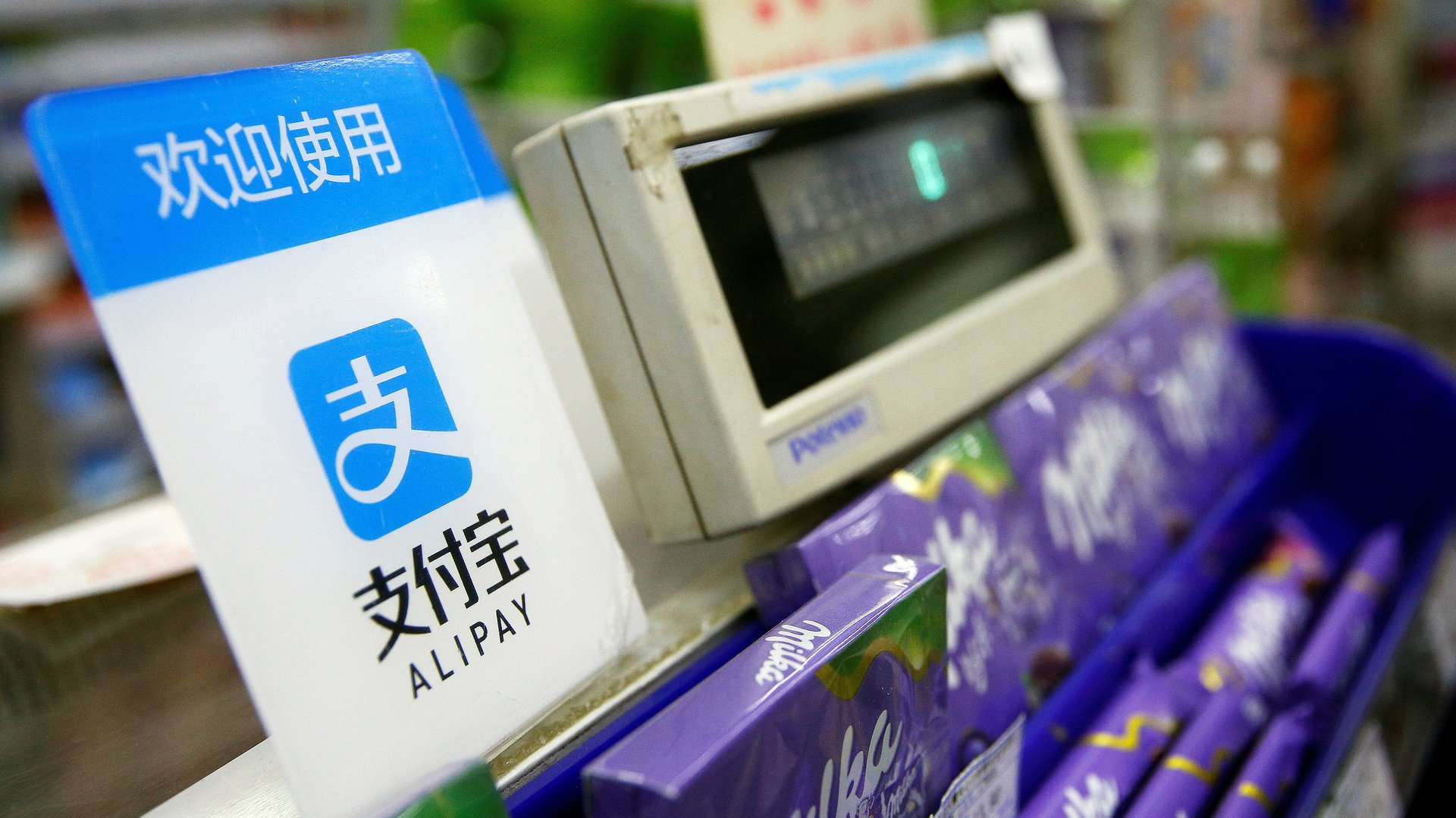Amazon could learn from the Chinese tech giants
Chinese technology companies, once derided as copycats of western innovations, are now creating their own unique products that American tech stalwarts may want (or be forced) to follow. Take Amazon Pay: the tech giant is reportedly trying extend its reach into the offline world. If successful, that strategy would look a lot like what Alibaba accomplished with Alipay in the world’s biggest market for mobile wallets.


Chinese technology companies, once derided as copycats of western innovations, are now creating their own unique products that American tech stalwarts may want (or be forced) to follow. Take Amazon Pay: the tech giant is reportedly trying extend its reach into the offline world. If successful, that strategy would look a lot like what Alibaba accomplished with Alipay in the world’s biggest market for mobile wallets.
Amazon’s foray into the payments business, in 2013, wasn’t a booming success, but it’s making a serious push now, according to Bernstein. The Seattle e-commerce company is trying to persuade the likes of gas stations and restaurants in the offline world to accept Amazon Pay, according to a Wall Street Journal report (paywall).
Earlier payment efforts, like Amazon Register, floundered. And for all of the $800 billion company’s muscle, Amazon Pay is one of the few digital wallets that failed to become more popular among US shoppers this year, according to a Bernstein survey. Amazon Pay has around 33 million users outside of Amazon.com and operates in the US, UK, India, Japan, France, Germany, Italy, and Spain. Amazon as a whole has more than 300 million active users. (PayPal has more than 250 million.)
Contrast this with Alipay, which has more than 870 million users around the world (though most are in China). The digital wallet was created in 2004 to provide a payment service for the Amazon-like e-commerce giant Alibaba, a relationship not unlike PayPal’s rise alongside eBay. Alipay launched offline mobile payments via barcodes in 2011, and says it was the first online wallet to market to do so. (PayPal started discussing offline options that year, too.) It now offers a suite of financial services like lending, investment, and insurance.
Amazon hasn’t been able to replicate this success, for a variety of reasons. For one thing, the US already has a highly developed consumer payment market where habits are entrenched. Merchants may also distrust Amazon as a partner, according to Bernstein analyst Harshita Rawat. Since Amazon is seen as a threat to the retail sector, smaller merchants may be reluctant to allow Amazon to have their data or to otherwise depend on its services. Its efforts in the payment arena have also been unfocused and disorganized, Rawat said.
Despite Amazon’s limited success so far, Alipay’s example may provide impetus for Amazon CEO Jeff Bezos to keep trying. Alipay, which now falls under the umbrella of Alibaba affiliate Ant Financial, has become a financial force in its own right, and the company has been making strategic investments and partnerships from Thailand to India.
By all appearances, Amazon is trying hard to push Amazon Pay. The company has launched Amazon Cash, a barcode system for using physical cash to load online accounts with money, and may reportedly include peer-to-peer payments in its Alexa digital assistant system.
If Bezos succeeds in gaining wider adoption of Amazon Pay the US, it may not mean much for Alipay, which is focused on other markets. But PayPal, the original US digital wallet innovator, should be worried.
The future of finance on Quartz
- Gift cards, the most asked-for gift in America, are a bad present. Give cold, hard cash instead.
- Robinhood is offering checking and saving with 3% interest. Mind you, the brokerage-app’s accounts aren’t backed by the full faith and credit of the US government like the accounts savers are used to. (Higher interest rates usually come with higher risk.)
- Sustainable investing may not be that sustainable. While “responsible” investing is booming, it needs better structure and standards.
- The co-founder of one of London’s fastest growing fintech firms isn’t sweating Brexit. The CEO of Revolut, which just got its EU banking license, re-iterated that the UK is among the best places for entrepreneurs.
- Subprime personal loans are forecast to surge next year. That’s because of the Trump administration’s lighter touch on payday lending, and startups’ reinvention of the personal loan.
The future of finance elsewhere
- The UK and EU are “sleepwalking towards a no-deal Brexit,” according to Martin Wolf of the Financial Times (paywall). He argues the costs of letting that happen would be enormous, both economically and politically.
- Amazon opened a “mini” version of its cashier-less store. The Amazon Go store in Seattle is only open to Amazon employees and their guests.
- So much for JPMorgan CEO Jamie Dimon’s golden age of banking. Instead of getting a boost from higher interest rates, bank stocks are sagging amid concerns the economy may slow.
- Fidelity International is considering a robo-advice sevice. The demise of human wealth advisors due to such platforms has been exaggerated.
- The crypto winter is deepening and the layoffs at startups are intensifying. ConsenSys, Steemit, and Token Agency have all had to fire staff (paywall).
Previously, in Future of Finance Friday
Dec. 7: An Indian entrepreneur aims to rid Japan of paper money, then repeat the trick in the US